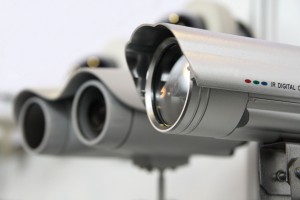
The Minnesota Senate passed a bill on Thursday that would regulate the video evidence collected from police through the use of body cameras, but it appears the bill will face some opposition in the House.
Similar to license plate reader legislation, it appears that both the Senate and the House are in favor of enacting some form of police body camera stipulations, but they are at odds over how the program will be regulated. The problem is that a zealous Democratic Senator attached his body camera regulation proposal to the larger license plate reader initiative. It seems as if both sides had come close to an agreement over how long license plate data could be stored in a database, but the body camera proposal could cripple the whole deal. Both sides have been sparring over the license plate storage regulations for over three years.
“This is the last train out of the station for this bill,” said Rep. Ron Latz, shortly before the Senate vote, which passed. “They are here, they are continuing to grow in use in Minnesota whether we take any action or not.”
Some House legislators wanted to put body camera legislation off until next year, but now they’ll be forced to confront the issue this session. Needless to say, some representatives aren’t happy about the idea.
“I don’t want body cameras shoved down our throats when we haven’t heard it in our committees,” said Rep. Tony Cornish. “The world isn’t going to end if we don’t have body-camera and license-plate-reader regulation, so what [the Senate] is doing is giving the very real possibility that we will lose both.”
Device Details
Under the proposed legislation, any audio and video from police body cameras would remain private unless:
- The encounter involves the use of a dangerous weapon by an officer.
- The incident involves physical coercion by an officer that caused substantial bodily harm.
- The subject of the encounter requests that the video be made public.
Sen. Terri Bonoff, DFL-Minnetonka, said she wished the bill would have been presented as a stand-alone option, but she believes the issue needs swift action, specifically because of high-profile officer-involved incidents in Ferguson, Baltimore and New York.
“I think transparency is the greatest strength we have in combating what has become a very divisive issue and affects public safety way more than one crime or another,” Bonoff said. “If we have a lack of trust between police and the citizens they are there to protect, then we really have a disintegration of safety in our communities.”
Related source: Star-Tribune





